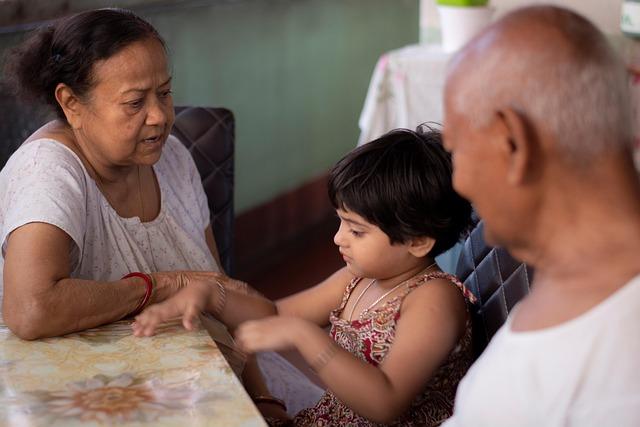The Department of Veterans Affairs (VA) continues to expand its support network, focusing not only on veterans but also on their families and caregivers. With a range of benefits designed to address the unique challenges faced by those who provide care and support, the VA aims to ensure that veterans receive comprehensive assistance both at home and in their communities. This article explores the latest updates and available resources under the VA Benefits for Family and Caregivers program, highlighting how these measures work to strengthen the vital bonds between veterans and their loved ones.
VA Benefits Overview for Family Members and Caregivers
The Department of Veterans Affairs offers a range of vital benefits designed specifically for family members and caregivers who play an essential role in supporting veterans. These benefits include access to health care services, mental health resources, and financial assistance programs created to reduce the burden of caregiving. Family members can receive counseling, training, and respite care, enabling them to provide better care while maintaining their own well-being.
Key benefits available to family members and caregivers include:
- Eligibility for CHAMPVA, a health care program for spouses and children of veterans with permanent disabilities
- Access to caregiver support coordinators and educational resources
- Respite care options that offer temporary relief from caregiving duties
- Financial aid through the Program of Comprehensive Assistance for Family Caregivers
| Benefit | Who Qualifies | Key Feature |
|---|---|---|
| CHAMPVA | Spouses and children of veterans | Comprehensive health coverage |
| Caregiver Support | Primary family caregivers | Training & respite care |
| Financial Assistance | Caregivers of severely injured veterans | Monthly stipend payments |
Eligibility Criteria and Application Process Explained
To qualify for family and caregiver VA benefits, applicants must meet specific eligibility requirements designed to support veterans and their support networks. Firstly, the veteran must have a qualifying service-connected injury or illness, or be enrolled in VA health care. Caregivers must be designated by the veteran and provide personal care services that enable the veteran to live safely at home. Additionally, eligibility extends to survivors of veterans who were seriously injured or disabled during service. Documentation such as service records, medical evaluations, and caregiver status verification is essential for processing the application.
The application process is streamlined yet thorough, focusing on verifying eligibility and assessing the type of support needed. Applicants can initiate their application online via the VA’s official portal or through a local VA medical center. The review involves multiple stages including a clinical assessment and a caregiver evaluation, ensuring benefits are tailored appropriately. Below is a quick overview of the application steps:
- Step 1: Confirm veteran’s service and health status.
- Step 2: Submit caregiver designation and documentation.
- Step 3: Undergo clinical assessment and caregiver evaluation.
- Step 4: Receive decision and benefit details from the VA.
| Document Type | Purpose |
|---|---|
| Service Records | Proof of qualifying military service |
| Medical Evaluation | Verification of disabilities or health conditions |
| Caregiver Affidavit | Official caregiver role confirmation |
Key Support Services Available Through Veterans Affairs
Veterans Affairs offers a comprehensive range of support services designed specifically for families and caregivers of veterans. These services include counseling programs focused on mental health and stress management, ensuring that caregivers receive the emotional support necessary to manage their responsibilities effectively. Additionally, the VA provides training workshops to help caregivers develop essential skills tailored to veterans’ needs, promoting enhanced care and quality of life.
- Respite Care: Temporary relief opportunities for caregivers to rest.
- Healthcare Benefits: Access to medical services for eligible family members.
- Financial Assistance: Stipends and grants to alleviate caregiving expenses.
- Community Resources: Connection to local support groups and veteran organizations.
| Service | Eligibility | Benefits |
|---|---|---|
| Caregiver Training | Primary family caregivers | Skill-building workshops |
| Respite Care | Registered caregivers | Temporary relief periods |
| Financial Support | Qualifying veterans’ families | Monthly stipends/grants |
By offering these key services, the VA plays a pivotal role in strengthening the family support network around veterans. This comprehensive approach not only addresses the veterans’ healthcare and emotional needs but also recognizes the vital contributions of caregivers, ensuring they are equipped, supported, and valued throughout their caregiving journey.
Expert Tips for Maximizing VA Benefits and Resources
Maximizing your VA benefits requires careful planning and staying informed about the latest updates and eligibility criteria. Family members and caregivers should regularly consult the official VA website and subscribe to newsletters to receive timely information on new programs and changes to existing benefits. Leveraging VA counselors or accredited representatives for personalized guidance can ensure that all eligible benefits‚ÄĒfrom healthcare to education and home modifications‚ÄĒare efficiently accessed. Don‚Äôt overlook the importance of maintaining thorough documentation, including service records and medical evaluations, crucial for smooth application processes and appeals.
Utilize these strategic approaches to fully capitalize on available resources:
- Attend VA workshops and webinars to understand complex benefit structures and submission protocols.
- Connect with veteran service organizations that offer advocacy and peer support for navigating VA systems.
- Explore state and local partnership programs that complement federal VA benefits, enhancing overall support.
- Regularly review benefit eligibility as updates may open new avenues for assistance.
| Resource | Benefit Focus | Access Requirement |
|---|---|---|
| VA Caregiver Support Line | Emotional and practical caregiver support | Registered caregivers |
| Veteran Readiness and Employment | Job training and employment assistance | Veterans with service-connected disabilities |
| CHAMPVA Health Benefits | Health care for certain family members | Surviving spouse or dependent of veteran |
Concluding Remarks
In summary, the VA’s commitment to supporting not only veterans but also their families and caregivers underscores the broader mission to honor and assist those who serve. With a range of benefits designed to ease the challenges faced by veteran families, the Department of Veterans Affairs continues to enhance access to vital resources, ensuring caregivers receive the recognition and support they deserve. For more detailed information on eligibility and application processes, veterans and their families are encouraged to visit VA.gov and connect with local VA offices. Staying informed about these benefits is crucial as efforts persist to improve the quality of life for those who stand behind America’s veterans.




